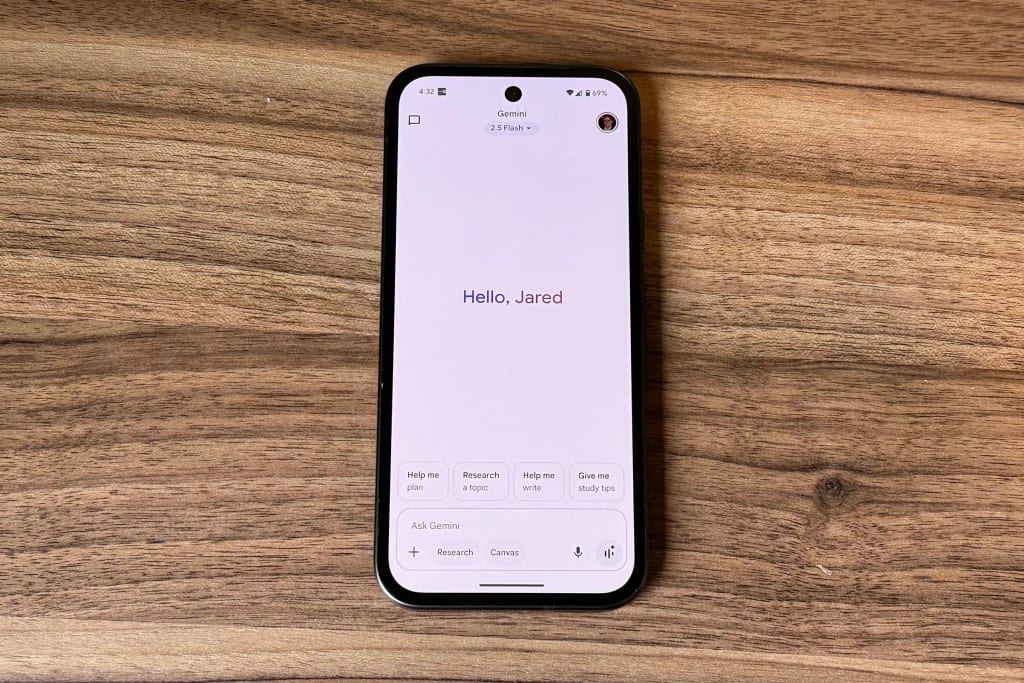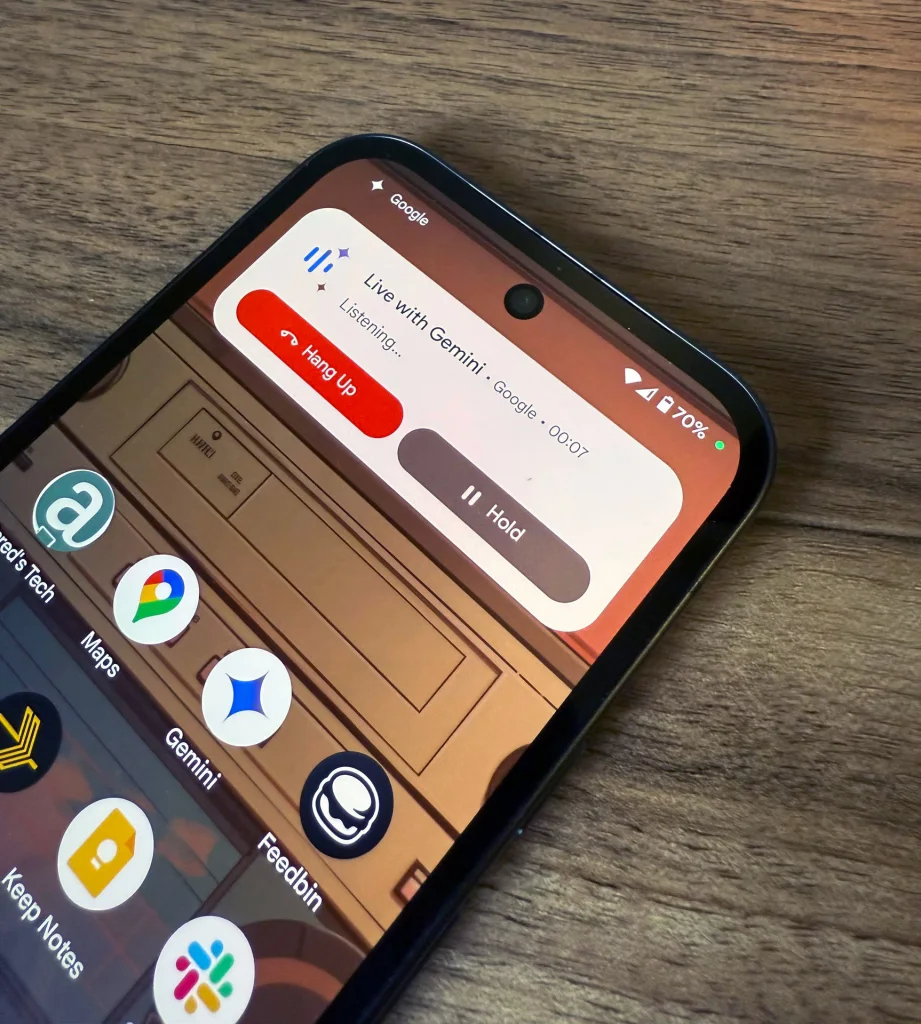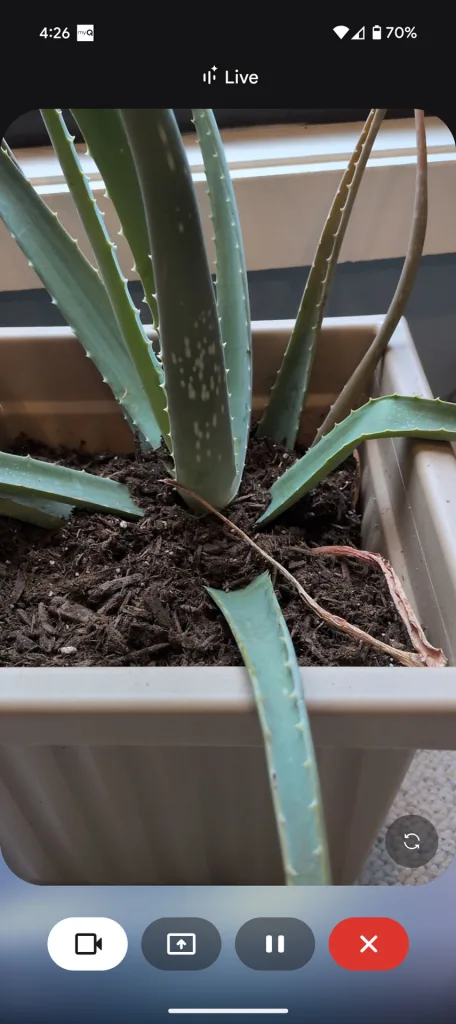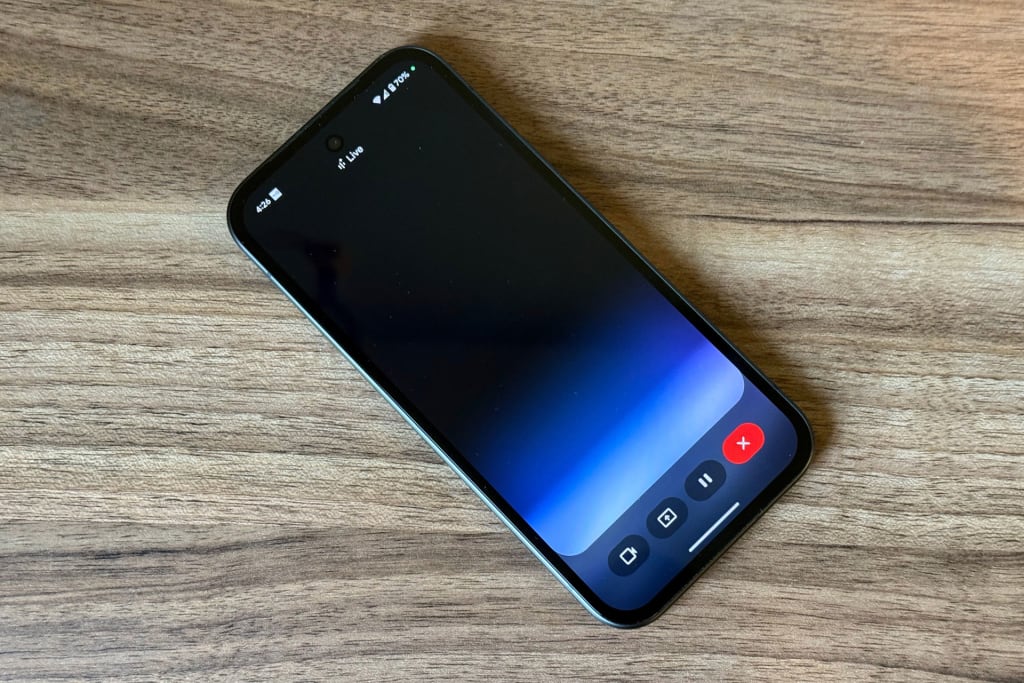Going into my time reviewing the Google Pixel 9a, I had this grand idea to transform myself into “AI Man.”
Google has made a big to-do about how it’s reimagining Android with AI at the core, and the $500 Pixel 9a is now the cheapest entry point into Google’s Gemini AI ecosystem. In the past I’ve found all those AI features easy to ignore, but this time I was going to dedicate myself to making the most of them.
It didn’t really work out as planned. While Gemini is a better assistant than it used to be on Pixel phones, it can also be a big a waste of time. And for all Google’s talk of reinventing all of Android around AI, some of the best Pixel AI features require a more expensive phone then the 9a.

Gemini’s promise and pitfalls
I’ll give Google credit for this much: Gemini on the Pixel 9a is no longer a trainwreck.
When Google started shipping Gemini as the default voice assistant on the Pixel 9 series, it was worse than the old Google Assistant at common tasks like creating to-do list items, checking local store hours, and getting directions. Google has patched in a lot of that missing functionality over the past nine months.
In some ways, Gemini even more useful now. I can ask for directions with a specific stop along the way, for instance, or have a back-and-forth to manage the items on my Google Keep grocery list. Being able to converse with Gemini about widely understood topics can be helpful as well, and unlike with Assistant, there’s a chat history you can look through for future reference.
Still, leaning on Gemini for anything important feels like a crapshoot.

While on vacation in Florida, for instance, I asked Gemini to look up the time for my flight home. It first informed me that I had two flights scheduled (I only had one), and when I asked to put the correct flight info on my calendar, Gemini added a completely invented flight to New York instead. (I live in Cincinnati.) Gemini also failed to account for traffic when I asked what time to leave for the airport, even though Google Maps provides this info on its own. And because Gemini can’t search through secondary calendars—like the one my wife and I use to coordinate pretty much everything—it’s been largely worthless for looking important dates.
Gemini Live, the conversational voice mode you can use it without touching the screen, had some issues as well. I tried using it to research a story on satellite messaging, only to later discover in my own research that Gemini got a half-dozen facts wrong. Later I asked Gemini to act like a stenographer, transcribing some thoughts of mine for this story, but it kept interrupting and failed to capture large chunks of what I said.

Even Gemini Live’s ballyhooed Camera Mode feels a bit like a parlor trick—albeit an impressive one. While pointing your camera at the real world, Gemini can identify and answer questions about what it sees. It recognized a mango tree on the aforementioned Florida trip, for instance, and told me that none of the fruit looked ripe enough to eat. But when I asked why my aloe plant at home looked red and droopy, the insight was no different than if I’d just asked the same question in a Google search. (Too much water, or maybe not enough, Gemini said.) Camera Mode’s ability to understand your surroundings may ultimately be a better fit for smart glasses that can easily ingest more information.
Keep in mind that none of these features are Pixel-exclusive. Gemini is also the default assistant on Samsung’s latest flagships, and it’s a free download on iOS. Meanwhile, the Pixel 9a doesn’t support some of the exclusive features Google does offer, like transcript summaries in the Recorder app, phone call summarization, and an app for organizing your screenshots.
Oddly enough, the Pixel AI feature I used the most is one that predates the ChatGPT era: When you get a call from an unknown number, tapping “Call Screen” asks the caller to explain who they are, and then shows you a transcript of their response. It’s an immensely satisfying way to deal with spammers and telemarketers, most of whom just hang up.

For Gemini to really make a difference on phones, it will need to interact with more apps and services, handle data from Google’s own services more reliably, and be better at not making stuff up. I don’t feel like the Pixel 9a is much closer to doing those things than previous Pixels, it just has a few more AI tricks bolted on.
Still a fine phone
Odd as it may seem to relegate the actual phone features to an afterthought, that pretty much reflects how I feel about the Pixel 9a. For $500, it’s a pretty good phone that I’ve been using in place of my usual flagships—an iPhone 16 Pro Max and a Samsung Galaxy Z Fold5—largely without complaint.
Yes, there are trade-offs. The camera array is less sophisticated, which mostly became an issue when I really wanted to zoom in on something. Battery life, while better than the Pixel 9, doesn’t match Google’s and Apple’s “Pro” level phones and led to some charging anxiety on long days. The bezels around the display are thicker. The edges are aluminum and not stainless steel, and the rear panel is plastic instead of glass. The front glass, meanwhile, is less resistant to drop damage.
Still, I never felt like the Pixel 9a was hindering me from doing what I needed to do, which was to see how Google’s AI-first vision for Android has manifested over the past year. And the verdict, so far, is that it mostly hasn’t.
Accedi per aggiungere un commento
Altri post in questo gruppo

When Spencer Rascoff took over as CEO at the struggling dating app giant Match Group in February, one of his first orders of business was to acquaint himself with all the services under his purvie

Artificial intelligence began

Earlier this year, a robot completed a half-marathon in Beijing in just under 2 hours and 40 minutes. That’s slower than the human winner, who clocked in at just over an hour—but it’s still a rema


Everyone’s always talking about new tools, but some of the best tools are the classic ones—incredibly useful things that have been around for ages. These are the tools that have stood the test of


As artificial intelligence’s influence continues to spread deeper into pop culture, major record labels are starting negotiations with AI companies to ensure they—and their artists—are prope
